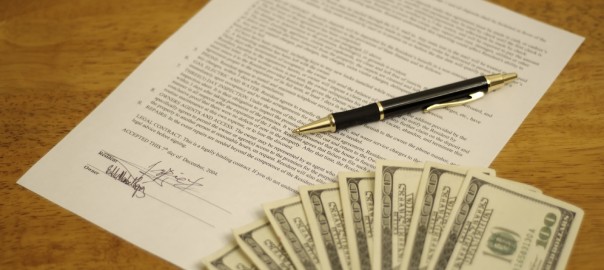What Constitutes A Good Deal?
By Paul Esajian on December 20, 2013
There is a common misconception in the business world that getting the best deal always equates to receiving the lowest price. There are many scenarios in which this is true, but there are other times when overpaying is both necessary and welcomed. Although this is counter-intuitive to popular belief, a good deal is represented by a satisfied investor. Any deal that you can walk away from happy should be considered a success. In other words, as long as you see value after conducting the appropriate research, you made a good deal. Sometimes you need to overpay just to acquire a respective property. This is OK, as long as you are still able to make a profit.
Before you make an offer, take a step back and analyze what you are bidding on. This includes making an offer on a property or deciding what contractor to use. You may be able to find a less expensive contractor on Craigslist or through a referral, but if their quality of work is sub-par, you my end up paying more to fix their mistakes. Never look at what the current list price is or the current offer you have received. Project to what the future value will be and base your numbers off of that.
If you see a projected property value of $150,000 and the current list price is only $110,000, you have a little room to play with. Evaluate the seller and what their motivation is. In the event that the seller is a bank, a quick sale and a cash closing will serve as ample motivation. To secure this offer, you could propose to close in 10 days with a cash offer of $120,000. Sure, you are paying more than what they are asking, but you are walking away from the deal with a property you still see value in. The alternative is to try to chip away at $105,000 and wait for other offers to come in. The bottom line is that if you were told you can get the property at $120,000, would you be happy with that? If the answer is yes, why not secure the property and get to that point first and eliminate any competition.
There are those who would say that you are bidding against yourself and there is no reason to offer higher than you have to. This may be true, but you don’t know how many other offers there are and how many would come in during the time you make your counter offer. Would you regret not offering more on a property you want and see value in or regret that you could have saved money by offering a lower amount? Of course you want the best of both worlds, but just because you want the lowest possible price does not mean you were going to get it. If you offer too low, your offer would most likely be quickly discarded or put on the bottom of the pile. Is it worth losing a property you really like over $5000?
Every deal and property should be evaluated on its own merit. What works for one property and offer may not work for another. There are times when you can offer low and get a great deal and others when offering full asking or even over can get you the property. Pick and choose your battles and know who you are bidding against. A good deal does not come down to how low you got the property for.